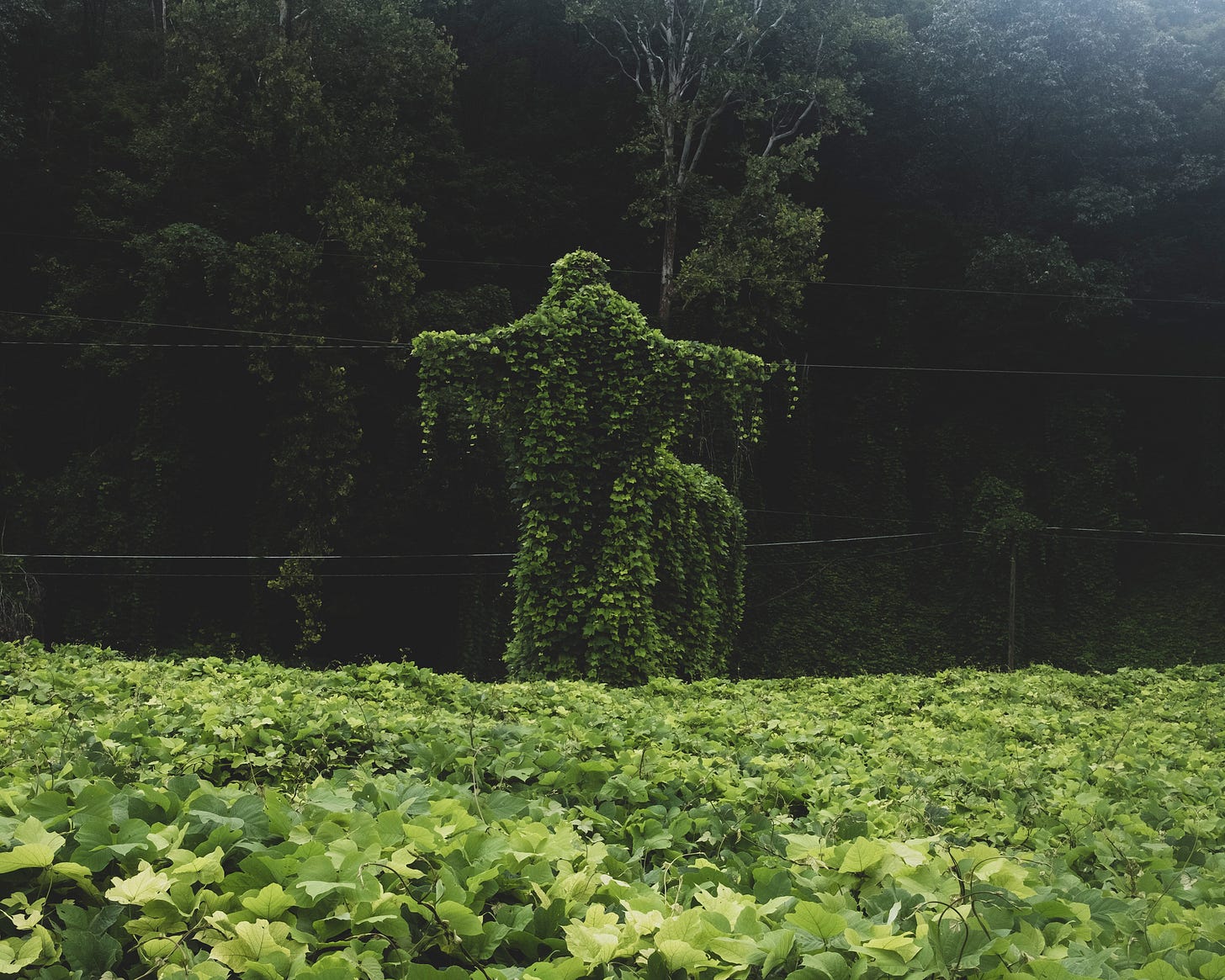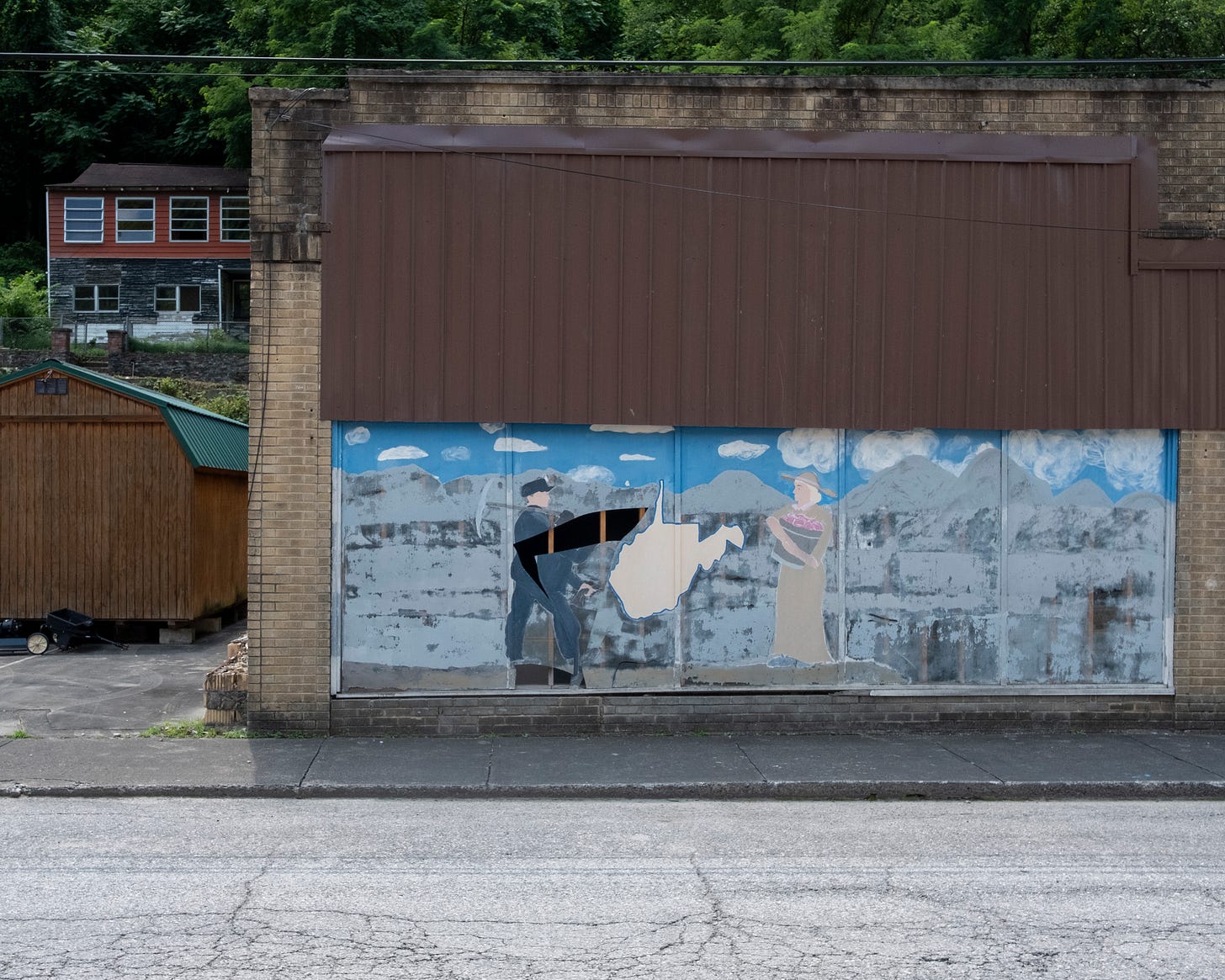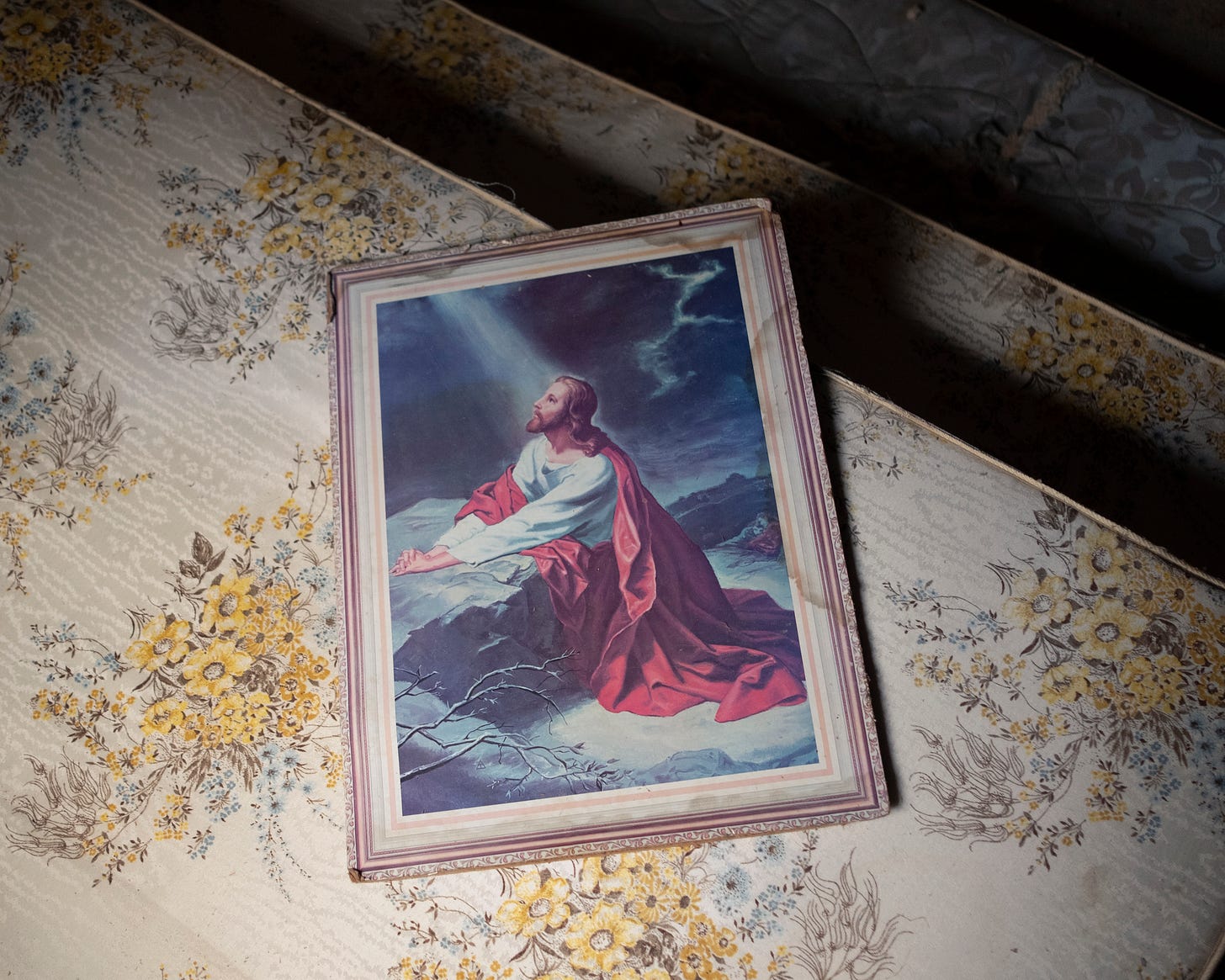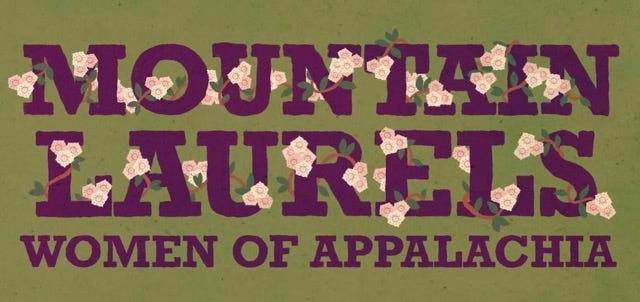Enough is enough and too much is nasty.
#005
My granddad, Richard Watson, used to say that. As with many things, he was right.
In fewer than 1,000 days, there have been no fewer than three 1,000-year floods in central Appalachia. The devastation is unreal but not unfamiliar. Resilience is a word that’s been used a lot lately in the region and about the region, but damn, it shouldn’t be a requirement to simply to live.
Today, I’m sharing some short pieces of writing from the last few years paired with photographs from the same timeframe. I think they reflect some of the anger, frustration, and loss I’m feeling right now.
When I think about how, as a nation, we got to where we are - the taking, the greed, and the downright nastiness, it can be too much. “We’ve run off and left the best part of ourselves,” wrote Jim Wayne Miller.
Native Tongue
If I go to hell, it won’t be because I didn’t accept Jesus. No, it’ll be for the time I chose to talk differently, to give up my accent. As the grandson of a preacher, I got saved more times than I can count, just in case the last time didn’t take. No, I reckon if I bust hell wide open, it’ll be because I traded part of my birthright, my native tongue, so they wouldn’t laugh. There are things in this world worse than the kind of hellfire and brimstone the Bible talks about, the kind those who are unfaithful deserve. There’s the kind of damnation that comes about from denying where you’re from, who you are, trying cover it up.
I was 14 when we moved to the city and they’d ask, “What color is that wall?” and I’d say, “Hit’s whiiiite,” and they’d all laugh. And I didn’t want the girls to laugh, so whiiiite with the extra i’s became white like the way everyone else there said it. And then I’d go back to home visit and they’d ask, “Who the hell do you think you are talking like that?”
Even if you leave your faith behind, leave home behind, leave your accent behind, you can’t get away from the hills and the kudzu and steeples that dot and cover them. They are there as a reminder that, no matter what, you are anchored to home. The argument could be made that they’re both invasive species – the kudzu and the missionaries that brought religion to these mountains.
The kudzu and the church houses, they might be more forgiving than at first glance as you come and go and toil in the world. They both cover things we all once hoped for, believed in, or at least wanted to. They hide things in plain sight. They were both brought here as a solution to a problem and spread like wildfire. They each tell a story in their own way; tell it quietly and tell it shouting.
If I could go back, I’d tell that lanky mountain boy to hold on to that kind of talk, that the kudzu would still listen – extra i’s and all.
Not an Almost Heaven West Virginia
We tell ourselves the stories we need to hear, need to believe to get by. But I’m tired of getting by. We say Almost Heaven while so many live in downright hell.
They say, “Why don’t those people just move away and get jobs somewhere else?” They say, “Pull yourself up by your bootstraps.” They say, “Those people get what they voted for.” Well, have you ever considered moving away from the only place you’ve ever known, the land that is woven into your DNA? Have you been able to reach the bootstrap attached to the boot on your neck? The boot that tells you if you want to make something of yourself you have to go somewhere else to do it? The boot that tells you coal is king and Jesus saves and just say no to drugs. The boot that has been in your life for so long you forget it’s there sometimes and have to look hard to find it because you’ve grown accustomed to thinking that this is all there is.
You see, Almost Heaven doesn’t complicate the narrative. It doesn’t reconcile colonialism and tourism in a mind. It doesn’t unfurl the banner of the long line of takers and collect the tears of the coal miner’s widow. It doesn’t listen to the kid who might want to leave or might not want to leave but goddamnit just wants to know there’ll be a home to come back to. It doesn’t speak for the countless voices buried at Hawks Nest or answer the question of freedom formed into a brick made by the hands of an enslaved West Virginian after 1863.
West Virginia is my home, my heart, the place I returned to after too many years away. This is where I’ll die and where, until then, I’ll be working to see a different West Virginia, not an Almost Heaven West Virginia.
Jesus Saves
He drove by the sign and shook his head. I don’t need saving, he thought to himself. He looked around at the brown and deeper brown leaves falling from the trees, the green hue of the river, and mud puddles splashed empty and filled again by passing coal trucks. Ain’t nothing left to save except for whatever people hold onto all white-knuckled. Every time he sees them signs, he shakes his head. Sometimes he gets plain old mean angry when he sees them. Other times he shuts down the thoughts that might creep in, of saving grace and god’s celestial shore, and thinks if God ever thought to save anything it wasn’t within a hundred miles of Mingo County. Jesus might save, but the company spends us like there ain’t no tomorrow.
If you’d like to help the impacted areas in central Appalachia, here are some links:
There are many, many agencies working to assist folks in the area, but please beware of scams if you decide to donate.
Recommended:
If you haven’t heard or aren’t subscribed to the Mountain Laurels - Women of Appalachia podcast, you’re missing out. Produced by Jessica Miles, this new podcast celebrates the women of Appalachia both past and present. Also, consider supporting them via Patreon. (I am!)
Lastly, thank you for reading this newsletter. To date, 138 of you have subscribed - both paid and free. I’m grateful for each of you. If you’ve been reading since it’s launch, you might’ve noticed I renamed it The Ground at My Feet. I was inspired recently when I reread Wendell Berry’s essay The Unforeseen Wilderness:
“And the world cannot be discovered by a journey of miles, no matter how long, but only by a spiritual journey, a journey of one inch, very arduous and humbling and joyful, by which we arrive at the ground at our feet, and learn to be at home. It is a journey we can make only by the acceptance of mystery and of mystification— by yielding to the condition that what we have expected is not there.”
For home,
Roger






The scarecrow is very ominous. I lost all my photo gear in a flood in June 2024. After 6 months of renovation, we could move back into our house in time for X-mas. So in a small way, I know how devastating that must feel.
You have your heart in the right place.